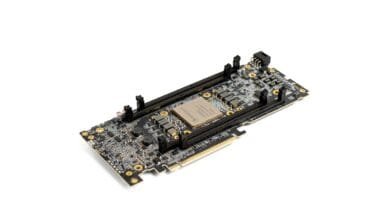Natcast Announces Major Staff Layoffs

▼ Summary
– Natcast, the non-profit running the National Semiconductor Technology Center, is laying off most staff and shutting down after the Commerce Department withheld $7.4 billion in funding.
– Commerce Secretary Lutnick accused Natcast of illegal creation and cronyism, announcing that the National Institute of Standards and Technology would take over NSTC operations.
– The Commerce Department suppressed Natcast’s operations for months by delaying approval of its research agenda and grant awards, including a $30 million project on RF chip design.
– Natcast defended itself against accusations, highlighting its industry oversight, experienced staff, and fulfillment of 119 government-mandated milestones and deliverables.
– Natcast had achieved key milestones including developing an R&D agenda, workforce programs, and 200 memberships, while providing critical infrastructure and expertise aimed at accelerating semiconductor innovation.
The non-profit organization Natcast, established to manage the National Semiconductor Technology Center under the CHIPS & Science Act, has informed the majority of its employees that they will be laid off. A small team will remain to oversee the organization’s closure in the coming weeks, according to sources familiar with the situation.
Founded in 2023, Natcast was tasked with operating the NSTC, a hub designed to advance semiconductor research, support prototyping, and strengthen the U.S. semiconductor workforce and supply chain. However, on August 25, Commerce Secretary Howard Lutnick announced the department would withhold the $7.4 billion in contracted funding, alleging the non-profit was not legally constituted. Lutnick further stated that the National Institute of Standards and Technology would assume control of NSTC operations.
For months, the Commerce Department has reportedly stalled Natcast’s progress. A completed research agenda submitted in April was never reviewed or approved. A memo on reducing PFAS impact in chip manufacturing also went unanswered. Even grant winners selected for a $30 million machine learning initiative for RF chip design have received no confirmation on funding.
One individual involved in early NSTC discussions called the situation “a sad end,” adding that Lutnick’s accusations of cronyism were “pretty frustrating.” The original structure, an independent public-private partnership, was intentionally designed through industry consultation to shield technical decisions from political influence.
In response, Natcast CEO Deirdre Hanford defended the organization in a September 4 letter to its 200 members, refuting claims of mismanagement and emphasizing compliance with all government agreements. She highlighted the extensive oversight from both government and industry, as well as the experienced team recruited from the semiconductor sector.
A September 8 report from Natcast outlined its key achievements, including the creation of an industry-led R&D agenda, workforce development programs, and a diverse membership roster featuring companies like Intel, Nvidia, and TSMC, alongside startups, universities, and equipment makers.
Members were promised access to cutting-edge facilities aimed at slashing prototype development time by 30%. Even leading researchers often lack such resources, making the NSTC’s infrastructure vital for startups and academic teams working with advanced nodes and 300-millimeter wafers. Though some facilities were still under development, Natcast had planned to integrate existing infrastructure nationwide to begin research promptly.
The organization also emphasized its lean operational model, claiming it could evaluate R&D proposals twice as fast as federal agencies while maintaining lower overhead costs. As one source noted, “Natcast was supposed to do what industry couldn’t solve by itself,” targeting foundational challenges like reducing the time and energy required for data movement between memory and computing, advances that would benefit the entire sector.
(Source: Spectrum IEEE)


